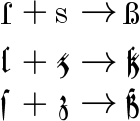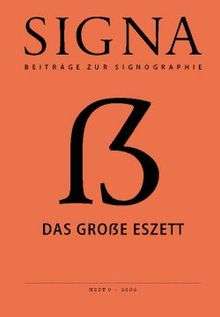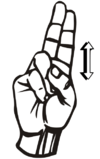Definify.com
Definition 2026
ẞ
ẞ
ß
ß
| ||||||
|---|---|---|---|---|---|---|
German

Symbol
ß (lower case, upper case SS, occasionally ẞ, or ß)
Usage notes
In alphabetic ordering, ß is equivalent to the string ss (formerly sz), so aß (“ate”) is sorted between Aspirin (“aspirin”) and Ast (“branch”), immediately after the alphabetically equivalent Ass (“ace”).
The letter is never used in Swiss or Liechtenstein German, where it is replaced by ss, so Straße is written Strasse. It is also almost unique among the Latin letters as there is no uppercase form. In all German-speaking countries, the letter is usually replaced with SS (STRASSE) when writing in uppercase, but the letter is sometimes used directly, either in its original lowercase form (STRAßE) or in the recently modified (and sometimes proscribed) "capital" form (STRAẞE). The old rule which mandated replacing ß with SZ (STRASZE) is now considered obsolete.
In German orthography, ß is treated as a letter of its own right. In the orthography from 1996 it is used instead of ss after long vowels and diphthongs. Thus „Masse“ (mass) is different in meaning and pronunciation from „Maße“ (measures). In alphabetical orders, the former would come directly before the latter if otherwise they are alphabetically equivalent. Both can be rendered MASSE in capitalization (whereby the distinction is then lost), but „Maße“ may also be spelled MASZE or MAßE.
The above-mentioned rule for the use of ß and ss was changed in the 1996 spelling reform. Before this reform ß also occurred after short vowels at the end of a word or before a consonant. Therefore a rather large number of words that used to be spelt with ß, are now spelt with ss (for example, daß has become dass). The older spelling has become rare, but is still found in the products of a few (conservative) publishing houses.

